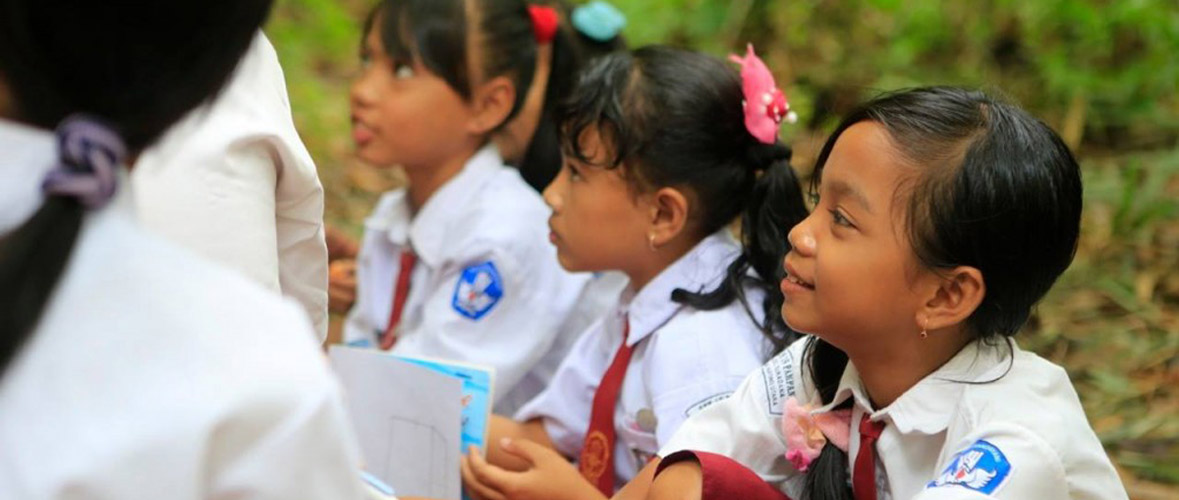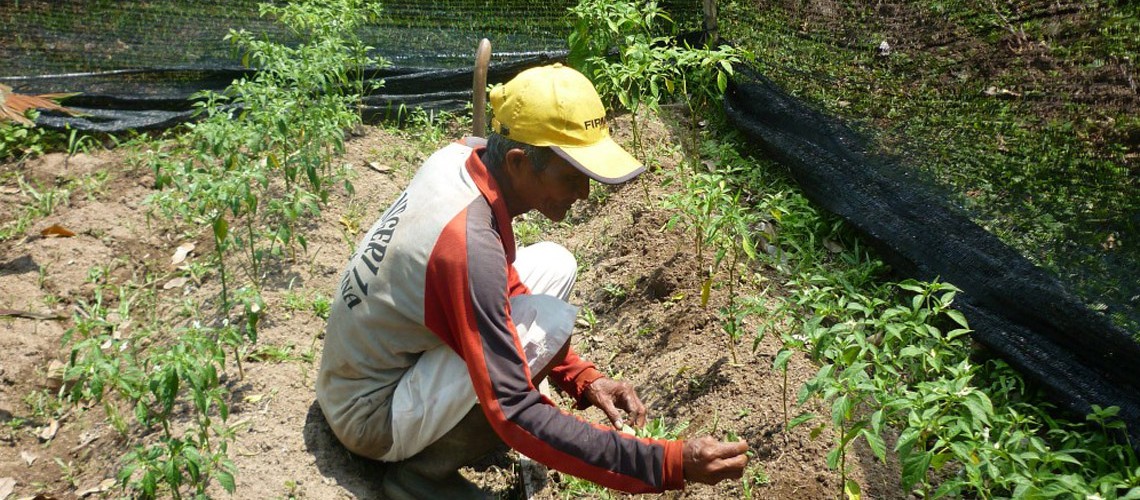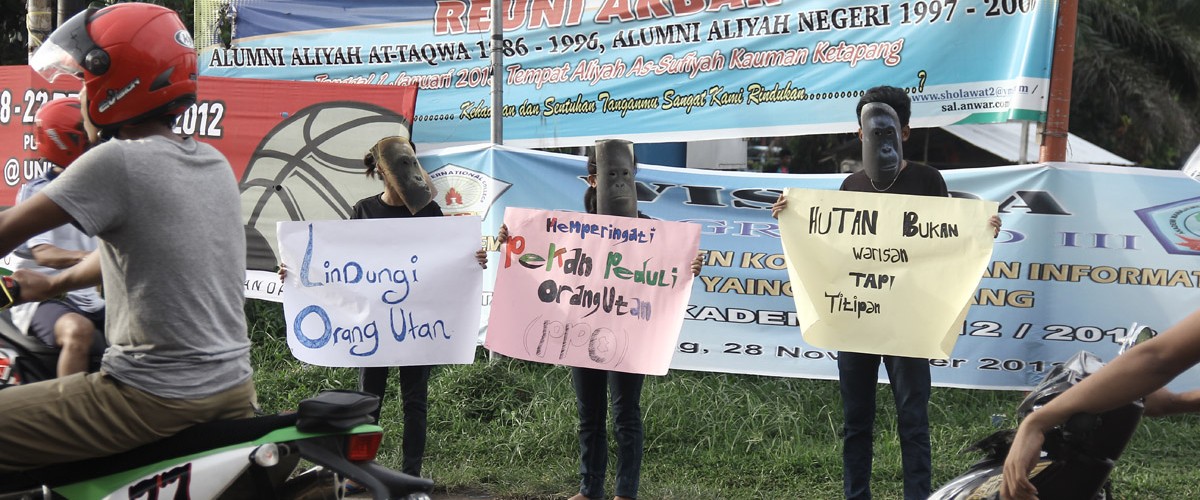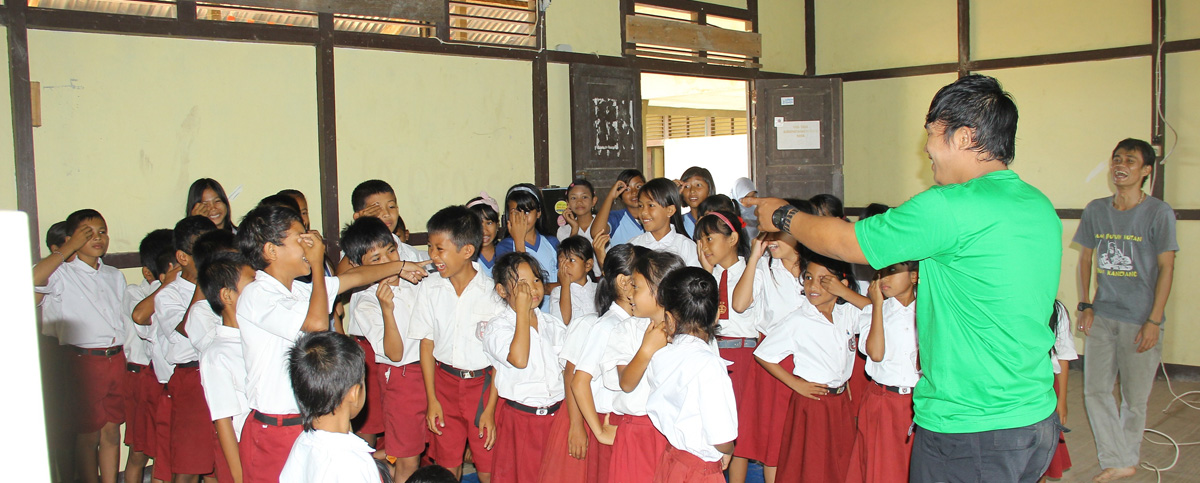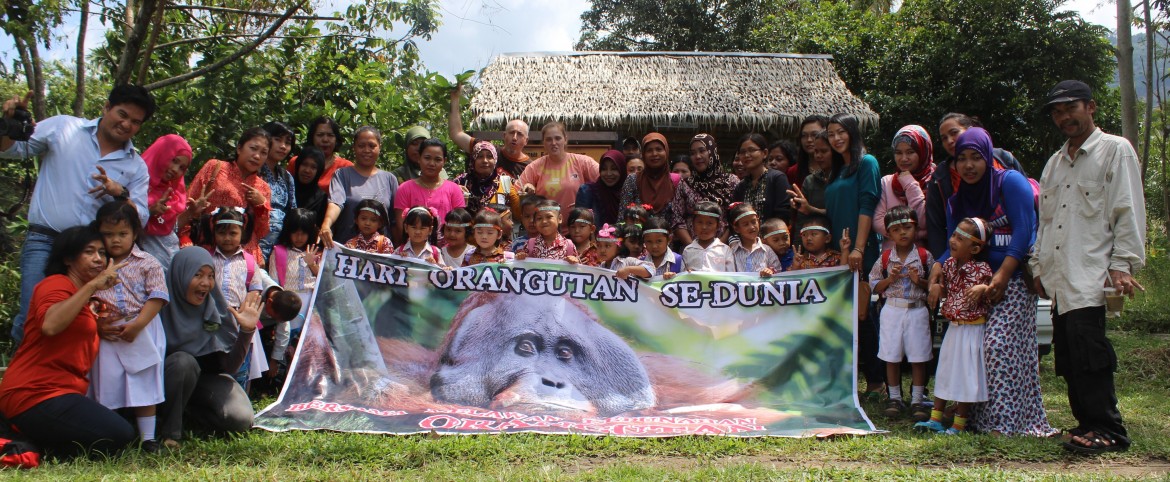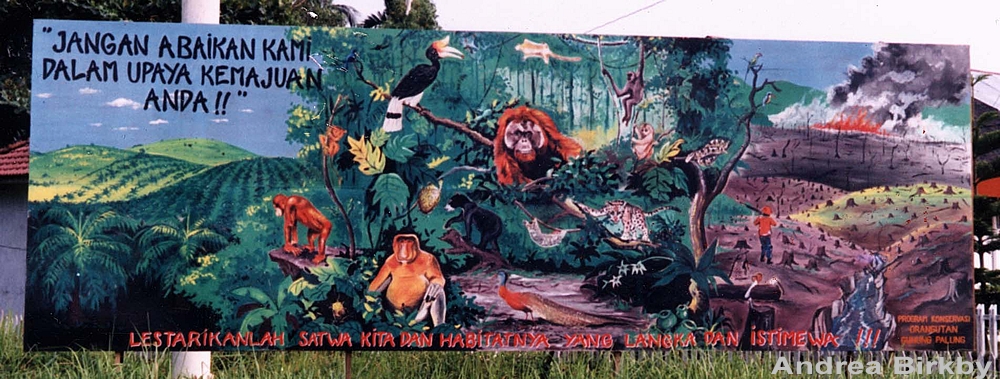By Mariamah Achmad
I have worked at GPOCP (known as Yayasan Palung in Indonesia) for the past 11 years, since October 2009. Throughout my time at Yayasan Palung, it has been like my home, since I’ve spent so much time here. Prior to working at Yayasan Palung, I worked for a different organization, empowering farming communities on the coast of West Kalimantan. This included political education and youth education, as well as strengthening the capacity of environmental activists. I have a degree in Forestry, so when I began working at Yayasan Palung, it seemed like I was returning to my educational background. I also was able to continue to exercise my passion for community education.

Eleven years is quite a long time working in one place, so you may be wondering, why did I stay so long working at Yayasan Palung? This job has not been about making money, but allows me, and other people like me, to live our respective passions, especially in the field of conservation. Yayasan Palung does not follow a rigid and formal work structure, but rather prioritizes strong relationships. We work in a friendly staff environment, with no firm hierarchy between positions. We all work together, while also maintaining professionalism.
Some of my favorite methods of education happen while in nature. For example, we take students to the forest, try new hiking trails, and forget about any fatigue when coming across beautiful nature and its sounds of animals and waterfalls. We also go on environmental education expeditions to remote villages, visiting new locations and meeting people from friendly rural communities. Traveling and being in nature is refreshing, but it can also be sad. Sometimes we see the conditions of people who are still living in poverty or the forests that have been damaged or converted into oil palm and mining plantations.
Yayasan Palung is well known by the wider community in the Ketapang and Kayong Utara Regencies, as well as throughout Indonesia. This is not only because it is the oldest conservation organization in the region, but also because our programs suit the needs of many communities. Yayasan Palung’s strengths are having staff who are experts and experienced in their respective fields, and who work loyally and happily in the field of nature conservation. We run programs that advocate for human rights, gender equality, and the rights of minority groups and the underprivileged who live around the forest.
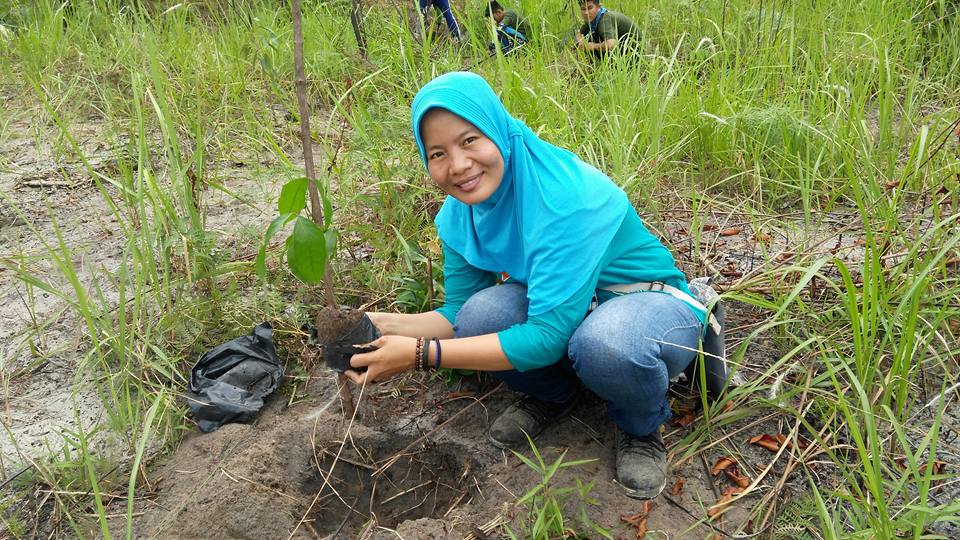
My team and I manage three programs: Environmental Education, Conservation Awareness, and West Bornean Orangutan Caring Scholarships (WBOCS). These programs are all related to increasing the educational capacity of people of various age groups, ranging from children to adults. We visit schools and universities to provide knowledge, skills and insight into conservation. We teach about orangutans, forests, biodiversity, climate change, waste, environmentally friendly lifestyles and more. Our scholarship recipients study a variety of disciplines at university and are involved in orangutan protection campaign activities throughout the year. We also reach people in rural areas through routine radio broadcasts, film screenings and community discussions. We reach a wider community through the dissemination of information and knowledge on our website, social media, monthly magazines and articles in regional newspapers both online and offline. We foster a space for local young people to volunteer and participate in outreach activities. We also mentor student interns at the Yayasan Palung office, who come from several different schools and universities.
Since Yayasan Palung has now been running for over 20 years, we have many programs already set in place. But still, each staff member is given the autonomy and opportunity to be creative and develop programming according to scientific developments or changes in the community over time. For example, puppet shows, lectures and student field trips to the forest have been around since Yayasan Palung was founded, yet each year we still implement new content and adapt our methods based on current conditions and needs.

Each of our programs has an important purpose and role to play in order to achieve our mission to build a love for the environment among the young generation, and get the Indonesian people to be involved in nature conservation efforts. In both the short and long term, we have seen that this has a very positive impact on the land.
After running the program at Yayasan Palung for a long time, my capacity still continues to grow. In particular, I continue to build upon my knowledge and skills for reaching the community to be involved in conservation efforts. More and more, I continue to understand the importance of these critical education initiatives for saving the remaining natural resources in Indonesia.
I find much joy from working in the field of education. I believe that education is the starting point for solving problems that continue to occur around us, such as poverty, forest destruction and other social issues. For the younger generation, education fuels dreams and motivation for their bright future.

My hope is that Yayasan Palung’s programs will continue to develop, benefit the community and slow the rate of forest destruction in order to preserve Indonesia’s remaining natural resources. It will be sad to say goodbye, but I’m so grateful for all the opportunities that Yayasan Palung has given me. Thank you Yayasan Palung!
